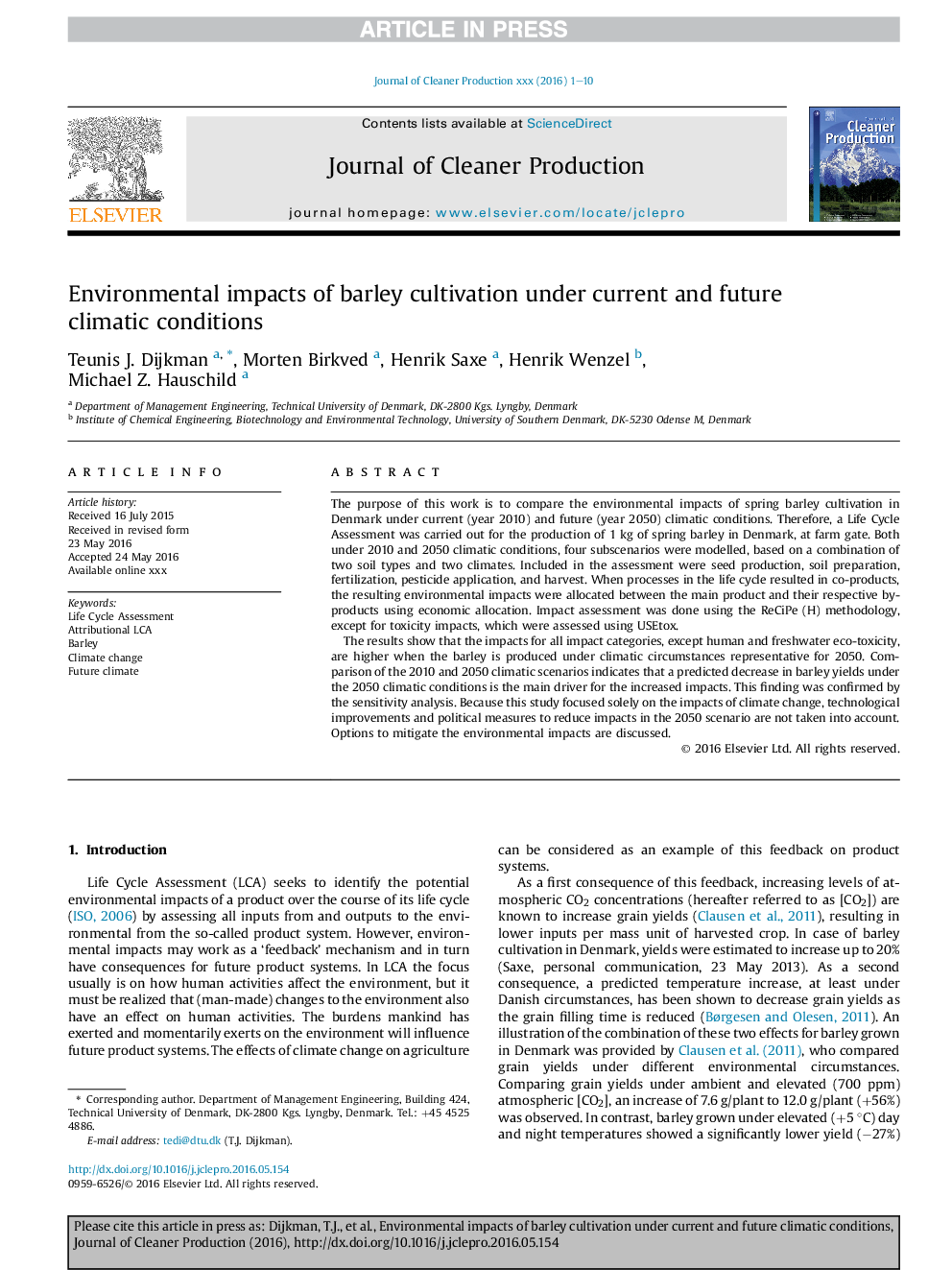| Article ID | Journal | Published Year | Pages | File Type |
|---|---|---|---|---|
| 5481539 | Journal of Cleaner Production | 2017 | 10 Pages |
Abstract
The results show that the impacts for all impact categories, except human and freshwater eco-toxicity, are higher when the barley is produced under climatic circumstances representative for 2050. Comparison of the 2010 and 2050 climatic scenarios indicates that a predicted decrease in barley yields under the 2050 climatic conditions is the main driver for the increased impacts. This finding was confirmed by the sensitivity analysis. Because this study focused solely on the impacts of climate change, technological improvements and political measures to reduce impacts in the 2050 scenario are not taken into account. Options to mitigate the environmental impacts are discussed.
Related Topics
Physical Sciences and Engineering
Energy
Renewable Energy, Sustainability and the Environment
Authors
Teunis J. Dijkman, Morten Birkved, Henrik Saxe, Henrik Wenzel, Michael Z. Hauschild,
